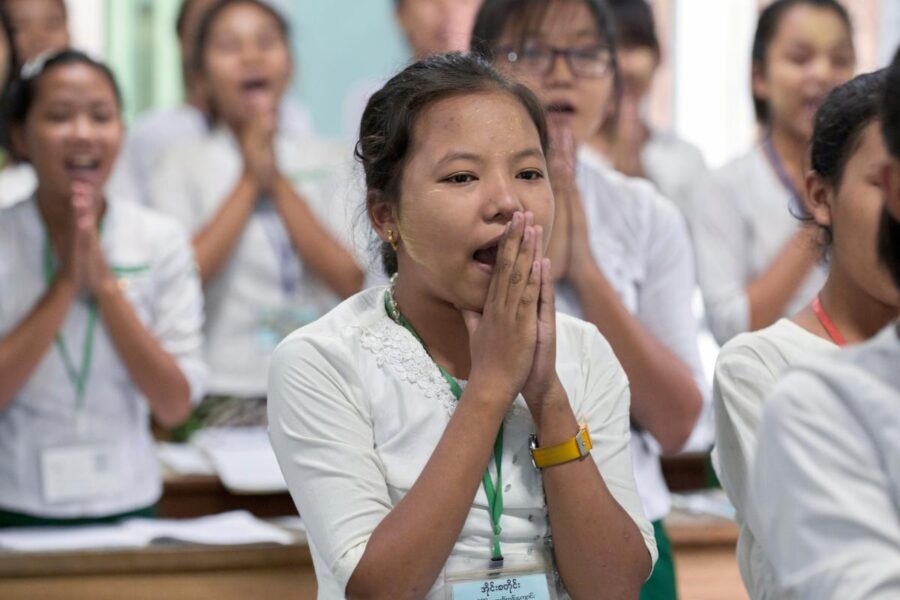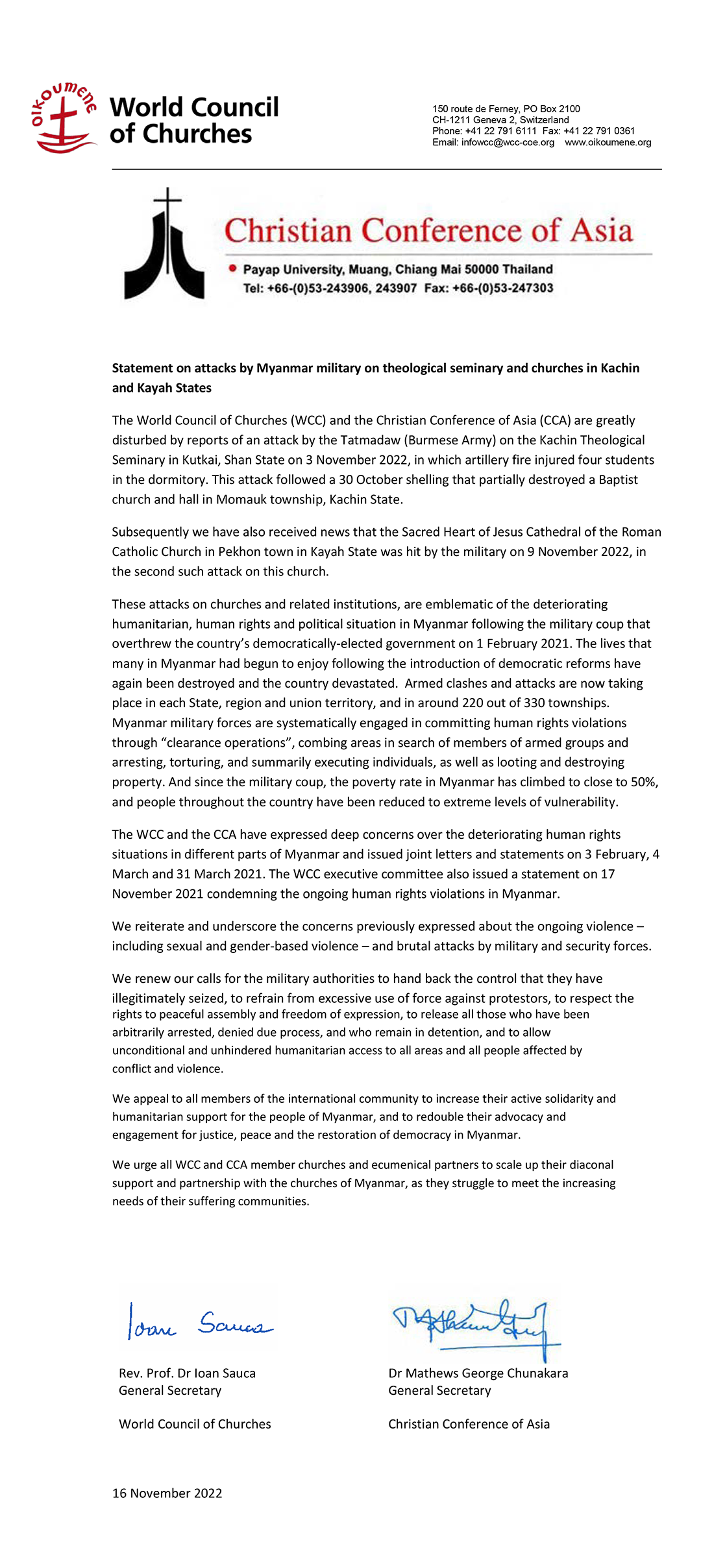WCC, Christian Conference of Asia heads co-sign message on attacks in Myanmar, urge redoubling advocacy and engagement for justice
 Students in a classroom of a school at kalay town in Myanmar. This school is located in Tahan, the largely ethnic Chin section of Kalay. Photo: Paul Jeffrey/Life on Earth
Students in a classroom of a school at kalay town in Myanmar. This school is located in Tahan, the largely ethnic Chin section of Kalay. Photo: Paul Jeffrey/Life on Earth
A joint message signed by World Council of Churches acting general secretary Rev. Prof. Dr Ioan Sauca and Christian Conference of Asia General Secretary Dr Mathews George Chunakara expressed grave concern over recent attacks by the Myanmar military on a theological seminary and churches in Kachin and Kayah States.
The general secretaries observed that the recent attacks on churches and related institutions “are emblematic of the deteriorating humanitarian, human rights and political situation in Myanmar” since the military coup that took place on 1 February 2021.
“The lives that many in Myanmar had begun to enjoy following the introduction of democratic reforms have again been destroyed and the country devastated,” reads the message. Armed clashes and attacks are now taking place in many parts of the country, and “since the military coup, the poverty rate in Myanmar has climbed to close to 50%, and people throughout the country have been reduced to extreme levels of vulnerability.”
Sauca and Chunakara reiterated deep concern expressed during the past year over the deteriorating human rights situations in different parts of Myanmar. “We reiterate and underscore the concerns previously expressed about the ongoing violence – including sexual and gender-based violence – and brutal attacks by military and security forces,” reads the message. “We renew our calls for the military authorities to hand back the control that they have illegitimately seized, to refrain from excessive use of force against protestors, to respect the rights to peaceful assembly and freedom of expression, to release all those who have been arbitrarily arrested, denied due process, and who remain in detention, and to allow unconditional and unhindered humanitarian access to all areas and all people affected by conflict and violence.”
Sauca and Chunakara appeal to all members of the international community to increase their active solidarity and humanitarian support for the people of Myanmar, “and to redouble their advocacy and engagement for justice, peace and the restoration of democracy in Myanmar.” They also urge churches and related organizations around the world “to scale up their diaconal support and partnership with the churches of Myanmar” in order to help meet increasing community needs.
©WCC News











